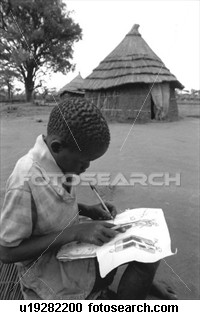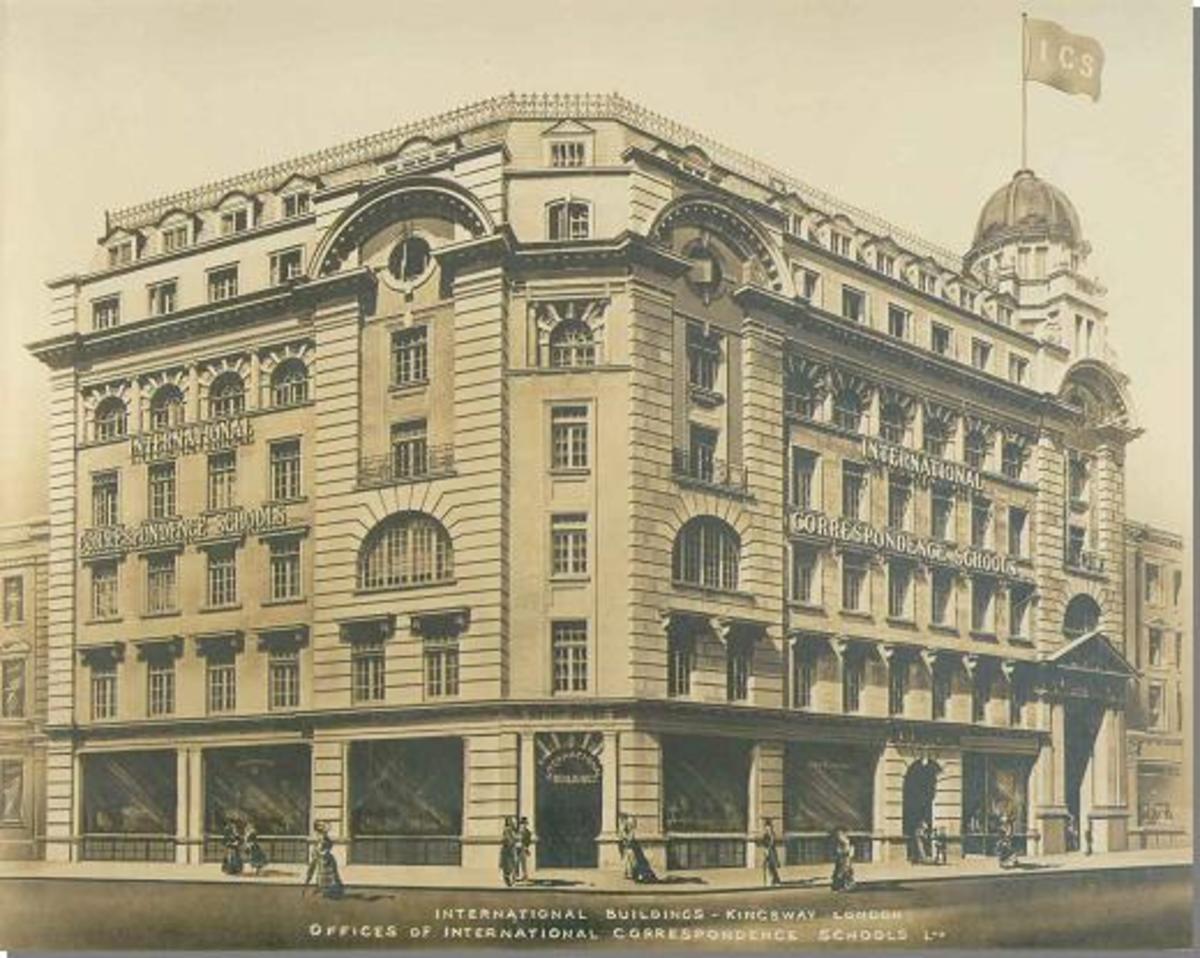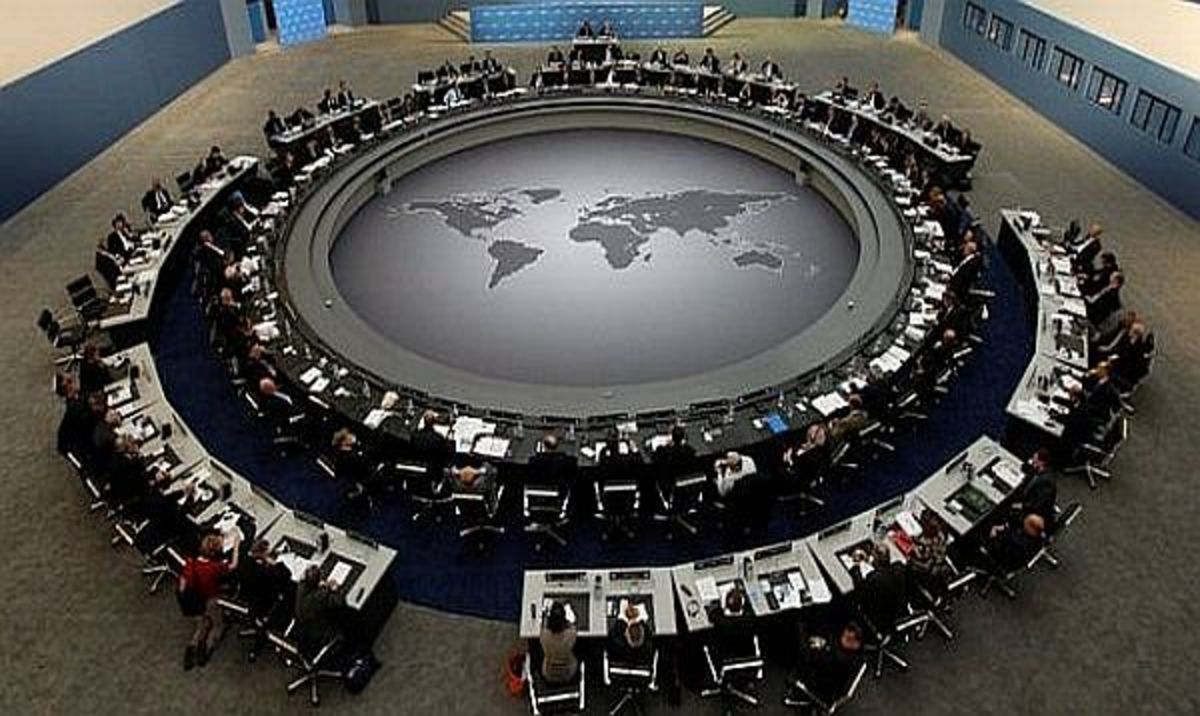How to Prepare to Live and Work Abroad - A Self-Study Course for Expatriate Workers

Introduction to a Comprehensive Self-Study Course for Christian Expatriate Leadership Candidates Recruited to a Foreign Country
This is a comprehensive self-study course for Christian missionary candidates transitioning into leadership positions in Cambodia. However, even as this self-study course is aimed towards Christian expatriate leaders, much of the suggested modules can be adapted, tweaked and applied to other Christian and non-Christian expatriate leaders recruited to work in Cambodia or any other place in the world.
Currently, organizations such as Christian and Missionary Alliance (CAMA), Overseas Missionary Fellowship (OMF), and Evangelical Friends Church Mission Cambodia are recruiting expatriate Christian believers for leadership positions in their Cambodian ministries. Before the recruits can become effective leaders in the Cambodian context, it is important that they learn about the Cambodian culture and how to be influential guides within that culture.
Being an influential leader in a foreign country is not easy; as written in HR Director (2006): “Different cultures have different perspectives on leadership; [for this reason], leaders cannot be readily transferred from culture to culture.” Due to the complexities of leading or working in different cultural settings, Kraft (1996) added: “To gain understanding of the people of another culture, [cross-cultural leaders] need to study the people they work among and their way of life;” they need to begin their cross-cultural studies as early as possible in their preparation; and continue the learning process until the end of their careers.
With these sentiments in mind, this comprehensive self-study course was designed for expatriate Christian missionaries transitioning into organizational leadership positions in order that they might become valuable assets to their teammates and the Cambodian nationals with whom they work. The course takes the participant through nine learning modules put together to help them gain a deeper understanding of (a) the cross-cultural ministry of Jesus Christ; (b) underlying theological, psychological, and sociological principles relevant to cultural development and cross-cultural integration; and (c) effective leadership practices for cross-cultural settings. If they work through all nine modules, the whole program should take 18 months to two-years to complete which according to Elkins (2000) is the suggested amount of time a new missionary should spend getting acquainted with his or her new host culture (personal communication).
The seven study modules are broken down into the following topics:
1. Personal Spiritual Formation
2. Intensive Study of the Ministry of Jesus Christ
3. The Theology of Missions
4. Overview of the Behavioral Sciences
5. Overview of Cambodia’s history
6. Cultural Integration
7. Interpersonal Relationships
8. Language Acquisition
9. Leadership Enhancement

Learning Module #1 – Personal Spiritual Formation
Projected time for completion: A lifetime endeavor
Projected outcomes: An intimate relationship with the Living God and His Son Jesus Christ.
Learning curricula: For this module, the missionary can go to the Renovaré website at http://www.renovare.org/ to find a selection of resources for enhancing his personal relationship with the Lord. Among the most important skills to be obtained in spiritual formation is how to incorporate classical spiritual disciplines (e.g. prayer, fasting, solitude, meditation, etc.) in one’s everyday life.
Explanation: When asked about the most important commandment Jesus answered with the Jewish shema saying, “Hear O Israel, The Lord your God is One. You shall love the Lord your God with all your heart, all your mind, all your soul and all your strength” (Mark 12:30). About his purpose on earth (among other things) Jesus said he came “to give life and give it to the full” (John 10:10). However, Jesus also said that he was the vine and his followers the branches and that only those who abide in him would live fruitful lives (John 15:1-5). If this is the case then cultivating a personal relationship with God through spiritual formation is perhaps the most important endeavor of a missionary could do while working in foreign land. Renovare wrote:
We are all spiritual beings. We have physical bodies, but our lives are largely driven by an unseen part of us. There is an immaterial center in us that shapes the way we see the world and ourselves, directs the choices we make, and guides our actions. Our spirit is the most important part of who we are. And yet we rarely spend time developing our inner life. That's what spiritual formation is all about.
Personal assessment tools: Progress in the area of personal spiritual formation is assessed in whether the person is actively engaging the spiritual disciplines on a consistent basis and if it is having a positive impact on his personality (e.g. is the person becoming more gracious and loving in the manner that Jesus was?).
Jesus Resurrected

Learning Module #2: Intensive Study of the Life and Ministry of Jesus Christ
Projected time for completion: 18 months to 2 years.
Projected outcomes: When finished with this learning module, the student will have both a broad and a deep understanding of the ministry of Jesus Christ as presented in the four gospel accounts.
Learning Curricula: This module employs two well-rounded study methods in order to meet the projected outcomes: (a) a Socio-rhetorical study of the four gospels and (b) Compendium of Pastoral Theology: The Life of Christ based on the Gospel according to St. Matthew.
1. Socio-rhetorical study of the four gospels
For this part of learning module #1 – The participant will obtain a copy of Exploring the Texture of Texts by Vernon K. Robbins (1996) in order to perform an extensive study of the life and ministry of Jesus Christ. In order to get the full benefit of the study, the student will employ at least the first three steps of the socio-rhetorical method which are (a) inner texture analysis, (b) intertexture analysis, and (c) social and cultural texture analysis. As the student works through this study, he will keep his findings in a notebook as a continuous record of his progress through the study of the life and ministry of Christ; a record which can be reviewed at will by his field superintendent or other appropriate management personnel of the sending agency.
2. Compendium of Pastoral Theology: The Life of Christ based on the Gospel according to St. Matthew.
This Life of Christ study is a six volume Theological Education by Extension (TEE) curriculum published and licensed by S.E.A.N. International which can be acquired through a participating TEE chapter in Cambodia. There is a two-fold purpose for working through these volumes: (a) it is a comprehensive look at the Life of Christ and (b) this program is used by most of the larger Christian organizations in Cambodia to train up leaders in the national churches; therefore, it is likely that the recruit will be asked to teach this curriculum as part of his leadership duties. As a way of assessing the students progress through this study, each volume has a corresponding comprehensive mid-term and final exam which the student will need to pass before he can move on to the next volume.
Explanation: According to John 1:14 Jesus Christ is God made flesh (New Revised Standard Version). In Philippians 2:5, 6, the Apostle Paul intimated that Jesus stepped out of his position as God to be made in the likeness of a human being in order to serve human beings. Furthermore, in Romans 8: 29, Paul declared that Christians have been chosen by God to be conformed to the likeness of Christ and added in 2 Corinthians 5:20 that his followers are ambassadors of Christ’s heavenly kingdom. As Jesus left his kingdom in heaven to live among human beings, so he was in essence a missionary who engaged in cross-cultural ministry. In so far as Christians, including Christian missionaries, are ambassadors for Christ’s kingdom and called to be conformed in the likeness of Christ, so it seems appropriate that he or she should study the life of Christ to ascertain relevant practices and principles carried out by Jesus when He was doing His ministry.
Self-assessment tools: For the socio-rhetorical study of the life and ministry of Jesus, the student will keep a notebook that can be reviewed at any time by his supervisors. For the Compendium, each volume has a corresponding exam that the student has to pass before he can continue on to the next study.
Learning Module #3 – Theology of Missions
Projected time for completion: Three months to one year.
Projected outcomes: The student will understand and be able to articulate both the theoretical and practical theological foundations for Christian world missions.
Learning curricula: In order to fulfill the projected outcomes of this module, the student will register for and attend a Perspectives Course held in his or her local area as well as read and journal on incites discovered in the following three books: (a) Bosch’s (1999) Transforming Missions, (b) Pocock, Van Rheenen, and McConnell’s redacted work, The Changing Face of World Missions: Engaging Contemporary Issues and Trends,and (c) Hale’s On Being a Missionary.
Explanation: In order to better understand the nature of his or her future work in a foreign culture, the new missionary recruit should have a working knowledge of the theology of missions as it has evolved over time. This learning module guides the student in learning past and present perspectives of Christian missions.
Self-assessment tools: Depending on which level of the program one takes, the Perspectives course offers a certificate or college credit; in either case, the course has built in assessments. In regards to the additional reading assignments, the student will keep an ongoing journal of chapter summaries and insights gained from each book that can be reviewed by his or her field supervisor or appropriate management personnel from the sending agency.
Learning Module #4 – Overview of Behavioral Sciences
Projected time of completion: Three months.
Projected outcomes: After the completion of this learning module, the student will have a general understanding of how human beings behave in the world by way of reading assignments in cultural anthropology, sociology, and psychology.
Learning curricula: In order to gain a general understanding of human behavior in cultures around the world, the student will read the following works:
1. Anthropology for Christian Witness by Charles H. Kraft.
2. Cultural Anthropology: A Christian Perspective by Stephen Grunlan and Marvin K. Mayers.
3. The Forest and the Trees: Sociology as Life, Practice plus Promise by Allan G. Johnson.
4. Points of Influence: A Guide to Using Personality Trait at Work by Morley Segal
5. Understanding Folk Religion: A Christian Response to Popular Beliefs and Practices by Paul G. Hiebert, R. Daniel Shaw, and Tite Tiénou.
Explanation: Behavioral scientists have estimated there are approximately 6000 languages spoken around the world. With these 6000 languages, there are probably at least the same number of cultures with their own unique sets of norms and practices. If a person from one culture steps into the territory of another culture, he often judges the newly encountered culture through the lenses of his own ethnocentric worldview because he does not know any other way of doing things. This has been a common mistake of many Christian missionaries. For this reason, it is wise for a new missionary recruit to study basic ideas in cultural anthropology and other behavioral sciences to become acquainted with this tendency and learn strategies about how to avoid making the same errors as those who have gone before them.
Self-assessment tools: Like the reading assignments in the other modules, the student will keep a running journal in which he can summarize chapter themes and record special insights. Grunlan’s book especially has questions at the end of each chapter from which answers can be written down in the journal.

Learning Module #5 – Overview of Cambodian History
Projected time of completion: Three to six months
Projected outcomes: The student will have a working knowledge of Cambodia’s rich history from the time of the Angkor Empire until present day including the history of the Evangelical Christian church in Cambodia.
Learning curricula: In order to gain a working knowledge of Cambodia’s past, the participant in this self-study course is encouraged to read the following books:
1. A History of Cambodia by David Chandler.
2. Killing Fields, Living Fields by Don Cormack.
3. How Pol Pot Came to Power by Ben Kiernan.
4. Hun Sen: Strongman of Cambodia by Harish C. Mehta and Julie B. Mehta.
Explanation: In order to gain an appreciation of who the Cambodian’s are today, it is important to know about their storied past. Most of the Cambodian people are from the Khmer (or Mon-Khmer) ethnic group which has direct ties to the Angkor Civilization and Empire that dominated most of Southeast Asia from the 10th to the 13th century and remained a formidable force in the region through the 16th century. Because of this grand past, many Khmer (or Cambodian) citizens see themselves as a royal people even though their ancestors were subjugated under nearly continuous foreign occupation and rule from the l7th century. Without knowing about the Angkor Civilization, it would be difficult for a Christian missionary from the west to understand why the Cambodian people are so proud. Studying a people’s history aids in surmising the underlying assumptions of that people’s dominant worldview.
Self-assessment tool: In this case too, the student will keep a journal or notebook with in which he will write chapter summaries and other key insights gained from the suggested reading.

Learning Module # 6 – Cultural Learning and Integration
Projected time of completion: One to two years.
Projected outcomes: Upon completion of this learning module, the student will have a broad and deep understanding of the Cambodian culture and its underlying assumptions.
Learning curricula: The student will employ cultural integration materials produced by Dr. Richard Slimbach of Azusa Pacific University as a part of his Transcultural Journey curriculum in order to conduct 10 comprehensive interviews with Cambodian nationals. In the Transcultural Journey program, the student seeks out 10 nationals from the host culture and conducts a series of seven interviews, each of which allows the student to dig deeper into the host cultures norms and underlying worldviews. In order to gain essential insights into the national culture it is important to find interviewees who are typical of the culture (i.e. the student should not interview those who have rejected their national culture.) Findings from the interviews will be recorded in a journal.
Explanation: In order to get to know the people of a host culture, one has to talk with them. When conducted in humility and appreciation of the interviewees, the cultural integration interviews can lead to important insights that cannot be observed from outside behavior only.
Self-assessment tool: Upon completion of this learning module, the student will have 10 notebooks within which he has recorded the insights gained through the 10 interviews.
Working Together

Learning Module #7 – Interpersonal Relationships
Projected time of completion: Relationships develop over the duration of the time on the field.
Projected outcomes: By working through this module, the new expatriate leader will have the skills to develop quality relationships with team members and members of the host culture.
Learning Curricula: InterVarsity has a number of articles and other resources for developing cross-cultural relationships; they can be accessed at http://www.intervarsity.org/ism/cat/16. Developing relationships naturally includes conflict; as this is the case the student is encouraged to read The Peacemaker by Ken Sande and Cross-Cultural Conflict: Building Relationships for Effective Ministry by Duane Elmer.
Explanation: One of the most important factors contributing to a positive or negative experience for those working abroad is the quality of interpersonal relationships with co-workers and members of the host culture.
Self-assessment tools: Of the proof is in the pudding as they say. The chief manner by which to assess progress in this area is whether the person is actually developing solid relationships with co-workers and nationals from the host culture. However, there are also some good assessment tools available online to determine if a person’s suitability for developing quality relationships. One assessment tool is the FIRO-B which “gathers critical insights into how an individual’s interpersonal needs can shape his or her interactions with others” (CPP, p. 1). For further suggestions of possible assessment tools, the student can contact the Center for Effective Organizations at http://www.regent.edu/acad/global/centers/ceo/about.shtml.
Learning Module #8 – Language Acquisition
Projected time of completion: This project continues for the duration of the recruit’s time on the field; however, significant milestones should be reached at intervals of six months for two years.
Projected outcomes: Through this learning module, the student will learn how to speak, write, and read the national language of the host culture.
Learning curricula: In this self-study course, language learning will proceed by employing the following materials: first, the student will obtain a copy of Passing the Baton for the language learning time line in the Appendix at the end of the book. Second, he will learn how to use the PILAT (Program in Language Acquisition Techniques) by attending a training seminar put on by Mission Training International. Third, when he arrives in country, he will find a native Khmer (Cambodian) language speaker with whom to practice the exercises given in the PILAT materials. Fourth, he should hire a professional language tutor who can teach him how to read and write Khmer. Finally, he should take formal classes at the Foreign Language Institute in Phnom Penh to learn a more formal dialect.
Explanation: Both Kraft and Grunlan agree that an essential avenue to learn another culture is to learn the dominant language of that culture. In light of this insight, the participant in this training program is encouraged to learn the native language of Cambodia.
Self-assessment tools: The new missionary leader can assess his language acquisition progress by comparing the number of words he or she has learned with the number suggested in the Appendix of the book Passing the Baton. Of course, the ultimate assessment measure for a language acquisition program is whether or not the new leader recruit can carry on a conversation with Cambodian nationals who speak formal Khmer as well as with those who speak in unclear dialects.
Learning Module #9 – Leadership Enhancement
Projected time of completion: Formally, two years; informally, life-long endeavor.
Projected outcome: Through this learning module, the student will learn how to become a well-rounded leader.
Learning curricula: This leadership enhancement module consists of two parts. First, the participant will read one book on leadership every two months beginning with the following books: (a) Spiritual Leadership by Henry Blackaby, (b) The 360˚ Leader by John Maxwell. Second, when the student has been sufficient acclimated to his new cultural environment, the field supervisor will expose the new recruit to leadership opportunities on a graduating scale of difficulty. (The amount of time the new recruit will have to ramp up to his new assignment depends on the relative need of the team already on the field i.e. if the mission team has an immediate need for his or her services then the recruit will have to learn about the new host culture while on the job.)
Explanation: While they perform their duties, missionary leaders need to continue to grow as leaders. The two suggested books specifically mentioned above are listed because they highlight two very important aspects of the lives of new missionaries recruited to be leaders on the field. First, a Christian missionary is a spiritual leader; he represents the Living God to the people of the host culture. Second, new missionary recruits are hired to be leaders within the organization, but rarely will they occupy the top position on the mission team. Maxwell’s book gives helpful advice on how to gain and maintain influence from any position in the organization.
Self-assessment tool: Like some of the other modules, the student will maintain a journal notebook within which he records chapter summaries and other special insights he finds; this notebook can be reviewed by the field supervisor or other appropriate management personnel from the sending agency. A broad collection of assessment tools for developing and maintaining both leadership and organizational health are found at the Center for Effective Organizations at http://www.regent.edu/acad/global/centers/ceo/about.shtml; additional 360˚ leadership self-assessment tools are available from the Center for Center for Creative Leadership at www.ccl.org. Many missionary recruits have to learn while on the job CCL’s Learning Tactics Inventory “profiles a person's preferred learning behavior, outlines the consequences of overuse of each tactic, and explores ways to adopt new learning strategies and behaviors.”
Conclusion
Transferring leadership from one culture into another is not easy. With these sentiments in mind, this comprehensive self-study course was designed for expatriate Christian missionaries transitioning into organizational leadership positions in order that they might become valuable assets to their teammates and the Cambodian nationals with whom they work. May each person who engages this process be fortified by the presence of the Holy Spirit as he or she works through this material.
Sources
(1985). Compendium of Pastoral Theology: the Life of Christ, Volumes 1-6. SEAN International by way of Alliance Centers for Theological Study and Theological Education by Extension Association, Cambodia (TEEac).
Blackaby, H. and Blackaby, R. (2001). Spiritual Leadership. Nashville, Tennessee: Broadman & Holman Publishers.
Bosch, D. J. (1999). Transforming Mission: Paradigm Shifts in Theology of Mission. Maryknoll, New York: Orbis Books.
Chandler, D. (2008). A History of Cambodia, 4ed. Boulder, Colorado: Westview Press.
Cormack, D. (1998). Killing Fields, Living Fields.
Grunlan, S. A. (1988). Cultural Anthropology: A Christian Perspective, 2ed. Grand Rapids, Michigan: Zondervan Publishing House.
Hiebert, P., Shaw, R. D., and Tiénou, T. (1999). Understanding Folk Religion: A Christian Response to Popular Beliefs and Practices. Grand Rapids, Michigan: Baker Books.
Johnson, A. G. (1997). The Forest and the Trees: Sociology as Life, Practice, and Promise. Philadelphia: Temple University Press.
Kraft, C. H. (1996). Anthropology for Christian Witness. Maryknoll, New York: Orbis Books.
Kiernan, B. (2002). The Pol Pot Regime. New Haven, Connecticut: Yale University Press.
Maxwell, J. (2005). The 360˚ Leader: Developing Your Influence from Anywhere in the Organization. Nashville, Tennessee: Nelson Business, a Division of Thomas Nelson Publishers.
Mehta, H., and Mehta, J. (1998). Hun Sen: Strongman of Cambodia.
(2000). PILAT: Program in Language Acquisition Techniques. Mission Training International. Retrieved June 16, 2009 from http://www.mti.org/pilat.htm.
Robbins, V. K. (1994). Exploring the Texture of Texts: A Guide to Socio-Rhetorical Interpretation. Valley Forge, Pennsylvania: Trinity Press International.
Segal, M. (1996). Points of Influence: A Guide to Using Personality Theory at Work. San Francisco: Jossey-Bass Business & Management Series. ISBN: 0787902608
Slimbach, R. (2000). Transcultural Journeys: Cultural Integration with a Culture Mentor. (Unpublished).












